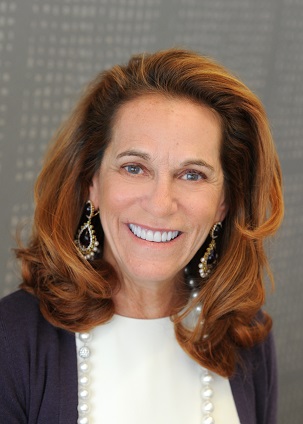Eight months have passed since the onset of the pandemic, and each additional day seems to add weight to the span. Every person I talk to has a quarantine stress-story; they talk about the weeks they spent monitoring their seasonal allergies, anxious that every normal sniffle might morph into a dry cough. They recall the moment they broke down in their cobbled-together home office after being furloughed, or sigh over that one time they had to barricade themselves in the bathroom to keep their toddler from interrupting a critical call.
There’s no doubt about it — we’re all worn out. In August, a survey conducted by Flexjobs found that 40 percent of participants say that they have experienced burnout specifically during the pandemic.
Burnout isn’t the only problem in the workforce, either. Before the pandemic, only five percent of employed and seven percent of unemployed workers reported struggling with mental health issues — now, those numbers stand at 18 percent and 27 percent, respectively. A full forty-two percent of employees say that their stress levels are currently “high or very high.” Respondents said they were worried about COVID-19, personal finances, current events, fear for family members’ health, the economy, and job responsibilities. The list — and the pandemic — goes on.
COVID-19 has impacted everyone at every level of the corporate ladder. Conversations on how to support employees through the emotional exhaustion caused by the pandemic has reached a fever pitch — but for a moment, I want to pivot the focus to those tasked with implementing that support.
As corporate leaders, we’re taught never to show weakness or uncertainty. We’re told to stay consistent and make rational decisions, even when we’re acutely aware that we hold our business — and the livelihoods of countless employees — in our hands. The weight of that responsibility can become unbearable.
“Everyone wants [business leaders] to demonstrate empathy—and, at the same time, be highly engaged and fact based in their actions. They are expected to make a positive difference in people’s lives with their leadership and wield both telescope and microscope adroitly—that is, have both a coherent long-term view and a set of effective short-term fixes at hand,” McKinsey writers Homayoun Hatami, Pal Erik Sjatil, and Kevin Sneader penned earlier this year.
“Yet,” the three conclude, “for all their expertise, they are grappling with many new questions for which they don’t have answers, even as their teams look to them for direction. The COVID-19 crisis is a once-in-a-century event, and no training or experience in previous downturns has prepared CEOs for it.”
Making matters even more complicated, chief executives often have fewer resources to draw on for support than their rank-and-file employees.
“The higher up you get in an organization, the more isolated you tend to become. You have fewer peers, fewer people you can be open and transparent with, so when you’re all the way at the top of the organization … [you often] don’t even have a confidante that [you] can share things with,” Dr. David Ballard, head of the Washington, D.C.-based American Psychological Association’s (APA’s) Center for Organizational Excellence told writers for SHRM. Ballard further pointed out that corporate leaders often don’t realize the necessity of building their own mental and emotional resilience or prioritizing their physical wellbeing.
Over time, this mounting pressure, coupled with a lack of honed resilience skills, can have a devastating impact on a leader’s work and wellbeing. They can burn out — a condition which often results in feeling exhausted, overextended, unmotivated, and ineffective for weeks or months on end. Their frustration and apathy can have a significant negative impact on their real business performance. Past research also tells us that those who are highly invested in their work tend to be susceptible to burnout because their identities are linked to their work performance.
The trend towards burnout and leader exhaustion would be problematic at any time. However, faced as we are with the prospect of months, if not an additional year of COVID-19 concerns, it is clear that we need to take steps to protect corporate leaders — and through them, their employees — from the weight of pandemic stress.
This line of thinking follows the oxygen-mask theory. The name refers to the emergency airline procedures, which ask parents to fix a lifesaving mask over their face before they help their child so that they have the breath and capability to save them both.
“Taking time for yourself is actually in service to the other people around you,” Amit Singh, Head of HR for Asia & Japan at AXA Investment Managers, commented in an article for HCA Magazine. “Command and control is really effective in times of crisis and times of emergency, but it’s not sustainable over the long term. It just burns people and organizations out too fast.”
The answer is to consciously present self-care as an imperative — not through some handed-down policy, but via real and decisive action.
“Rather than just worrying about employees’ stress and potential burnout, leaders can help them put the brakes on overwork,” leadership consultant Liz Kislik wrote in a recent article for the Harvard Business Review.
How can they do so? Kislik suggests that the key lies in modeling the change rather than verbally suggesting it. “[Leaders] can demonstrate how to maintain boundaries by not sending or responding to emails and other messages outside working hours. They can discuss how they are balancing their own personal and work commitments. At casual get-togethers and Zoom happy hours, leaders can share information about their vacation plans and encourage team members to make and share their own plans.”
The personal touch is logical when you think about it. After all, what employee is going to feel completely comfortable clicking out of their email at five if their boss regularly sends messages until half-past nine? Well-intentioned policies will come to naught if you take a “do as I say, not as I do” approach to anti-burnout tactics.
Leaders are living through turbulence right now, and years of training tell them that they need to immediately make sure that everyone else on the proverbial plane is comfortable and safe. They rush around solving problems, not realizing — like an anxious parent on an airplane — that ignoring their own wellbeing is actually hindering their mission.
Leaders, put on your oxygen masks and prioritize your mental health. Your employees, customers, and business partners will thank you for it.


